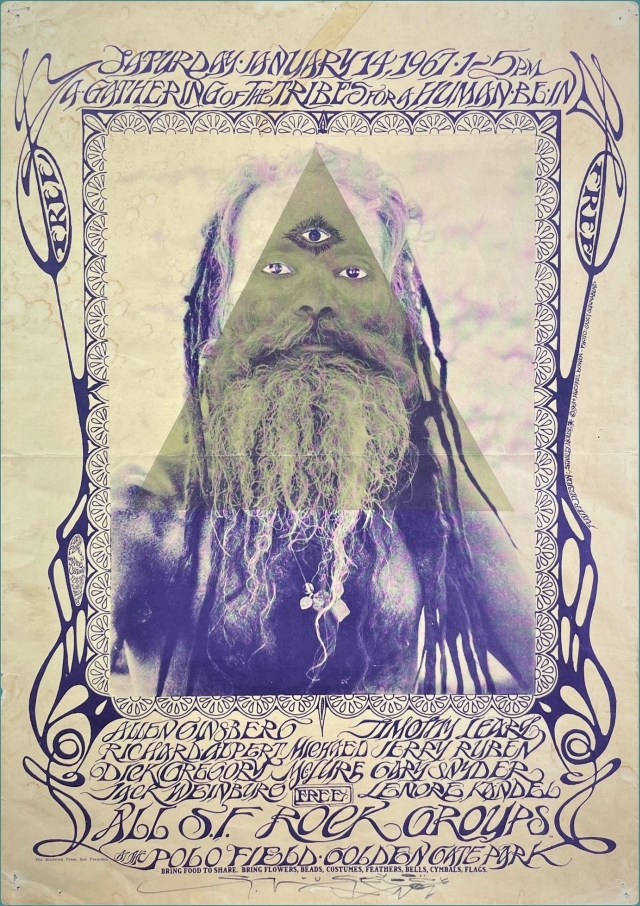Human Be-In
Golden Gate Park - San Francisco, CA (1967)
One of the most important and influential gatherings in American history took place in San Francisco 55 years ago today.
The press release for the The Human Be-In described the event as "a Gathering of the Tribes" and "a union of love and activism previously separated by categorical dogma and label mongering" which would bring together "Berkeley political activists and hip community, San Francisco's spiritual generation, and contingents from the emerging revolutionary generation all over California."
This was a free event that attracted a crowd of over 20,000 people. It included live performances by The Grateful Dead, Jefferson Airplane, Big Brother and The Holding Company, Quicksilver Messenger Service, and Blue Cheer. There were also group chants and speeches given by some of the most influential voices of the counter-culture, including Allen Ginsberg, Jerry Rubin, Alan Watts, Lenore Kandel, Dick Gregory, Gary Snyder, Richard Alpert, Michael McClure, Lawrence Ferlinghetti, and Timothy Leary, who told the gathering masses to "turn on, tune in, drop out".
 |
| Photo Source: Evie Johnson (FoundSF.org) |
The Sixties was born from a countless number of individuals of every race, ethnicity, gender, sexuality, and age. They include people from cities, suburbs and rural areas. They include the rich, the poor and the middle class. They include people of all levels of education, from college professors to high school dropouts. The common thread was that they were people who, for a wide variety of reasons, didn't fit in with or conform to the world around them. They saw inequality and injustice at nearly every turn from the establishment, and they wanted to make a difference.
The bravest of them hit the open road and discovered each other over a period of many years where they shared ideas and opened their minds to art, poetry, music, philosophical beliefs and ways to stand up against injustice. This snowball kept rolling downhill until it grew to include over a hundred thousand people who found their way to San Francisco, with Scott McKenzie's voice echoing in their minds, to share what would become known as The Summer of Love. It was the time and place that Hunter S. Thompson referred to in a 1971 piece for Rolling Stone (which was turned into a movie) when he wrote "...less than five years later, you can go up on a steep hill in Las Vegas and look west, and with the right kind of eyes you can almost see the high water mark – that place where the wave finally broke and rolled back".

